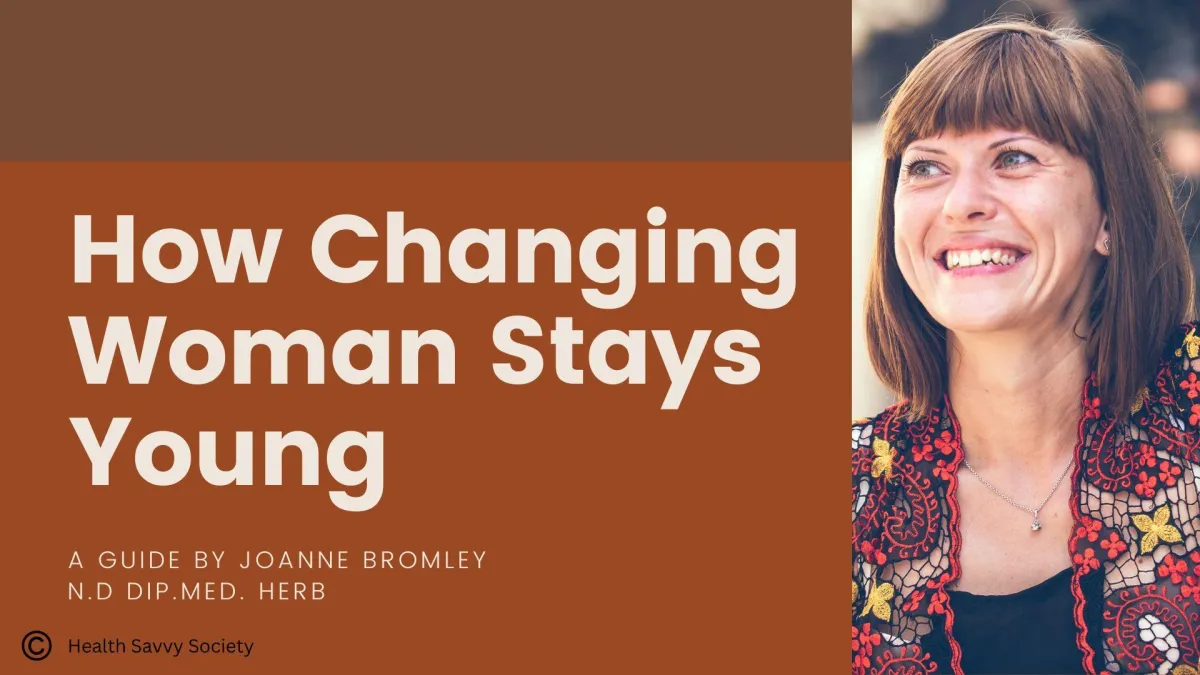The Savvy Tracks
BLOG

Menopause - How Changing Woman Stays Young
The Ultimate Guide to Managing Menopause
Although menopause is considered to be a sign of aging for many women, it doesn’t have to make you feel old. In fact, some women who go through menopause seem to have a renewed sense of vitality, making them appear even younger than they were before. Do you ever wonder how they do it? If so, you’re in the right place. Here are my tips on how to stay youthful when you are approaching menopause as well as how to combat specific menopause symptoms with natural remedies.
The Beauty of Menopause
Menopause is an opportunity to re-evaluate your purpose in life. When you welcome it with acceptance, it can provide the platform that you need to create on an enhanced level. Menopause brings with it the gift of positive change. Do you have any old passions that you have neglected in the past for one reason or another? Menopause is your chance to reconnect with these incomplete projects and fulfill your desires.

Managing Stress
Menopause causes a lot of changes in the hormones that you are producing.
As your ovaries begin to produce less oestrogen, your adrenal glands will respond by producing hormones that can mimic oestrogen to decrease your symptoms during and after menopause. However, if you are dealing with a high-stress lifestyle or feeling particularly stressed about menopause in general, your body will not be able to produce these hormones. This can result in uncomfortable menopause symptoms such as hot flashes, mood changes, and others.
If you do experience some menopause symptoms, there is no need to worry. Here are some natural remedies for some of the common symptoms that can accompany menopause:
Hot Flashes or Night Sweats
Hot flashes and night sweats are common symptoms of the transition through menopause. They can persist for a few years after the menopausal transition. To reduce hot flashes or night sweats, you can:
Eat more foods that are rich in phytoestrogens such as flax seeds, sesame seeds, berries, oats, lentils, rice, apples, and carrots.
Drink sage tea, red clover tea
Take chaste tree supplements
Avoid caffeine, alcohol, chocolates, and spicy food
Exercise gently each day
Anxiety or Mild Depression
If you experience mood changes throughout menopause, you are not alone. Anxiety or depression can be triggered by the hormonal changes that your body is experiencing. These symptoms can last for a few months up to a year. To regulate your mood, you can:
Drink St. John’s Wort tea
Take a Vitamin B complex supplement
Increase your magnesium intake
Avoid alcohol
Practice meditation
Spend time doing things that you love
Insomnia
Another common symptom of menopause is insomnia. Restlessness and an inability to fall asleep can go hand in hand with the hormonal changes that your body is experiencing. Insomnia can also be a result of uncomfortable hot flashes or night sweats. To help you get a good night’s rest, you can:
Drink chamomile tea or lemon balm tea
Eat foods that are rich in magnesium such as nuts, seeds, parsley, garlic, molasses, and mushrooms
Avoid caffeine and alcohol
Exercise during the day
Eat a light dinner early in the evening
Practice meditation and relaxation techniques
Headaches
When your body is experiencing a hormone imbalance, headaches can be frequent. Leading up to menopause, you might recognize that you are experiencing more intense headaches and migraines. For most people, these will subside once their periods stop.
To reduce headaches associated with menopause, you can:
Drink feverfew tea or fresh ginger tea
Take chaste tree tablets Supplement with evening primrose oil
Increase magnesium intake
Avoid caffeine
Practice relaxation techniques
Skin Problems
As you transition through menopause, you might notice some changes in the texture and appearance of your skin. It is normal to experience dryness, wrinkles, or an increase in acne when you are facing hormonal changes within your body. To keep your skin feeling healthy, you can:
Take echinacea drops
Supplement with chaste tree tablets or evening primrose oil
Drink red clover tea
Embrace Change
Change is inevitable. That’s why it’s important to keep a positive mindset when you are transitioning through a new period in your life.
Here is a YouTube video that highlights one of my favorite quotes about aging and menopause. As a visualization exercise, you can envision yourself and your younger self as you read and feel the powerful words.
Be ready to embrace change.
What is to come might be even more beautiful than what has passed.
© Copyright 2023 Health Savvy Society